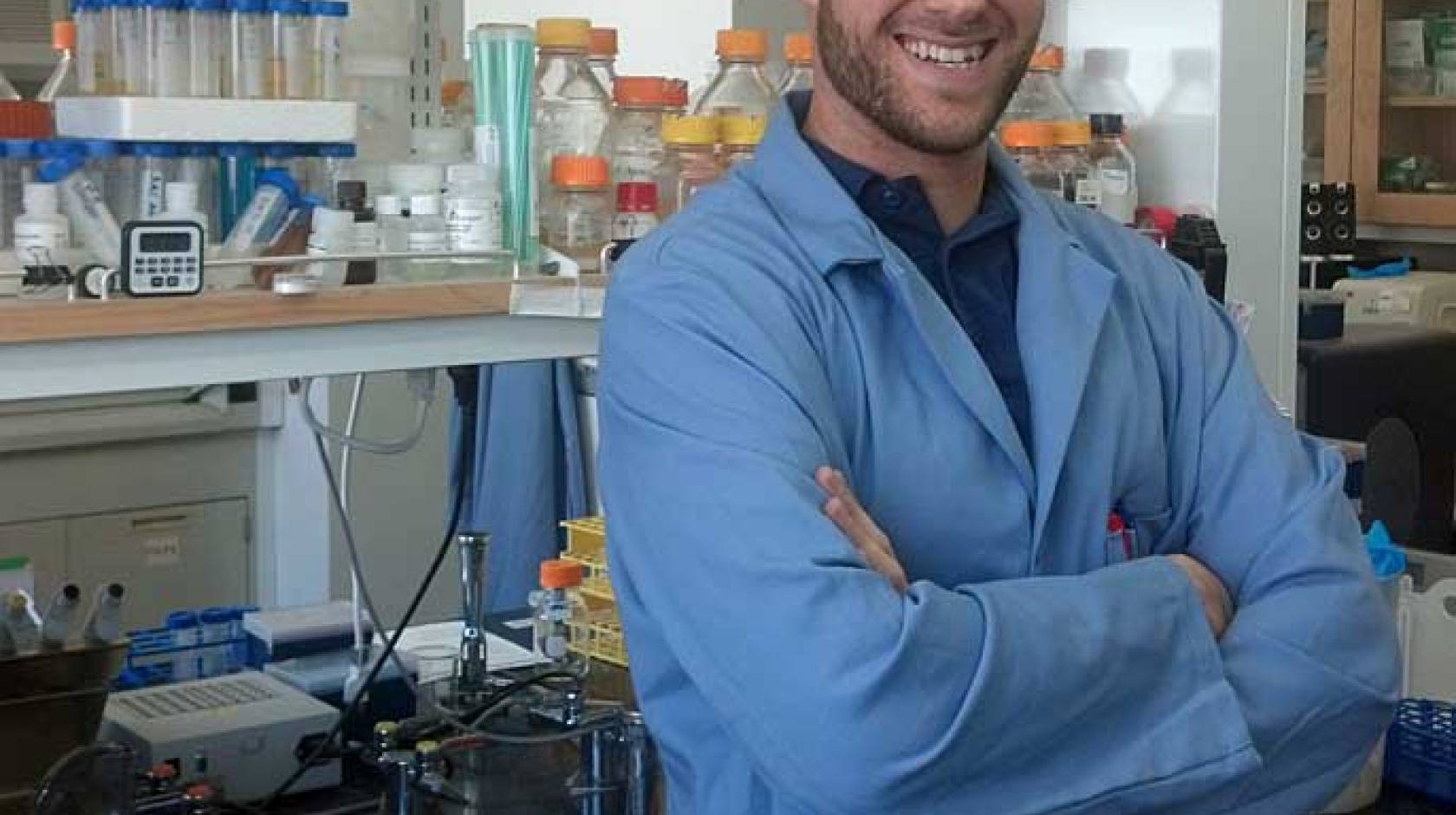Nicole Freeling, UC Newsroom

Sitting in the office of California Gov. Jerry Brown, Ph.D. student Dave Wernick explained how bacteria, manipulated at the molecular level, could lead to a renewable energy future.
Wernick, who works with a species of bacterium found only in one remote corner of the world, has figured out how to genetically re-engineer it to eat waste of all kinds, producing an alternative fuel that could go straight into gas tanks.
As sci-fi as that sounds, Wernick and colleagues in his lab already have a patent on such a breakthrough, and three more patents are pending. Mitsubishi Chemicals and the U.S. Department of Energy have begun working with him to reproduce this new energy source on an industrial scale.
The technology’s potential to create jobs and generate revenue while solving a major societal problem is typical of the kinds of high-impact work that many UC graduate students take on.
And it was just the kind of work on display in Sacramento on Wednesday when a delegation of UC graduate students, joined by UC President Janet Napolitano and UC Berkeley cell biology professor Randy Schekman, UC’s most recent Nobel laureate, met with lawmakers.
The aim of their visit: to show legislators the value of graduate research first-hand by sharing examples of the vital work they do.
As California's only public research university, UC's graduate programs stand apart both in California and in the nation. UC's 10 campuses educates 26,000 doctoral students annually — more than any other university system in the country — and it bestows 8 percent of the nation's Ph.Ds.
The students generate billions of dollars in research funding though federal grants and other sources. They are also a wellspring for new ideas and perform much of the legwork that any research breakthrough relies upon.
One of the hallmarks of UC graduate research is the wide degree of autonomy and ownership that students have over their work. The result: Graduate students are responsible for an unusually large number of start-ups and inventions, and their names appear frequently on published research.
“UC graduate students get jobs. But more importantly, they create jobs,” President Napolitano said. “They are a huge multiplier for the state.”
Work critical to California
Lawmakers on Wednesday heard from 22 graduate students — there were at least two from each campus — about a wide range of research underway on issues vital to California, from health disparities in underserved communities to novel approaches for mitigating traffic-related air pollution.
The work of UC Merced student Chelsea Arnold was particularly timely: She focuses on long-term consequences from drought.
Arnold studies a water resource that is often overlooked: 19,000 high elevation meadows in the Sierra Nevada. These wetlands serve as natural reservoirs, soaking up snowmelt and releasing it slowly into rivers and streams.
But that natural system is under threat: Unusually wet or dry years — such as the one we’re in now — permanently shrink the soil, an effect Arnold likened to turning a grape to a raisin.
“You can add water back in, but all you’re going to get is a soggy raisin,” Arnold said.
A resource that’s under threat
Private industry, the public sector, California schools — all have all reaped the benefits of research carried out by graduate students, UC officials told lawmakers. But UC graduate programs are under increasing pressure.
Uncertain federal funding has made it harder for graduate students to secure dollars critical to setting up their labs and conducting research. At the same time, faculty have less time for mentoring graduate students because of increased teaching loads. Budget tightening has also made it more difficult for UC to offer competitive stipends to graduate students.
UC is in danger of losing talented graduate students to institutions with big endowments that can afford to help them establish their labs. It’s not just UC that loses out when talented students chose institutions like Harvard and Yale over the University of California: It’s the state as a whole, Napolitano said.
“I worry in California that we take the UC and its excellence for granted," she said. Graduate students are the drivers “of the quality of research excellence that distinguishes UC among its peers and makes California the economic success and intellectual powerhouse that it is."

